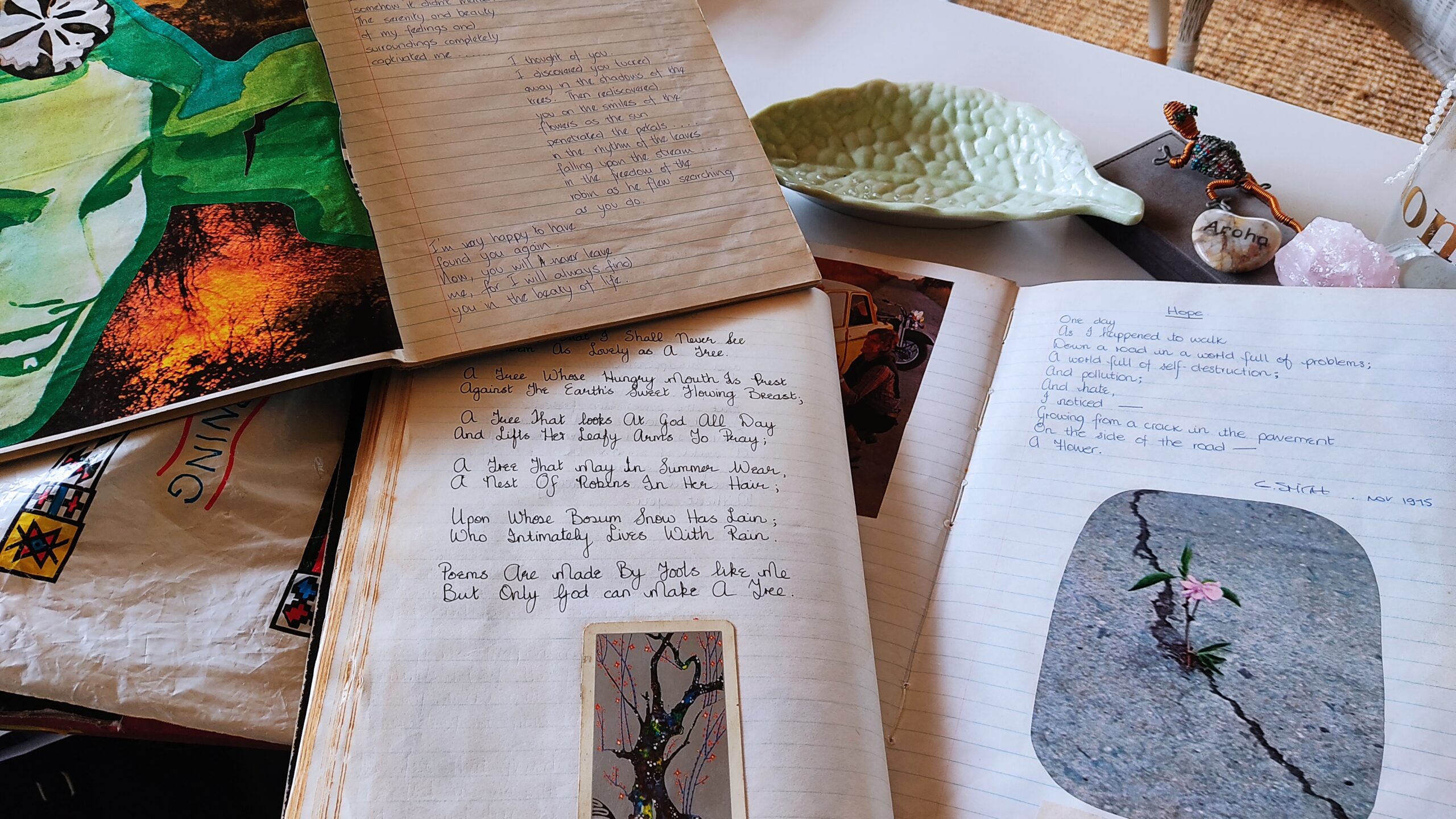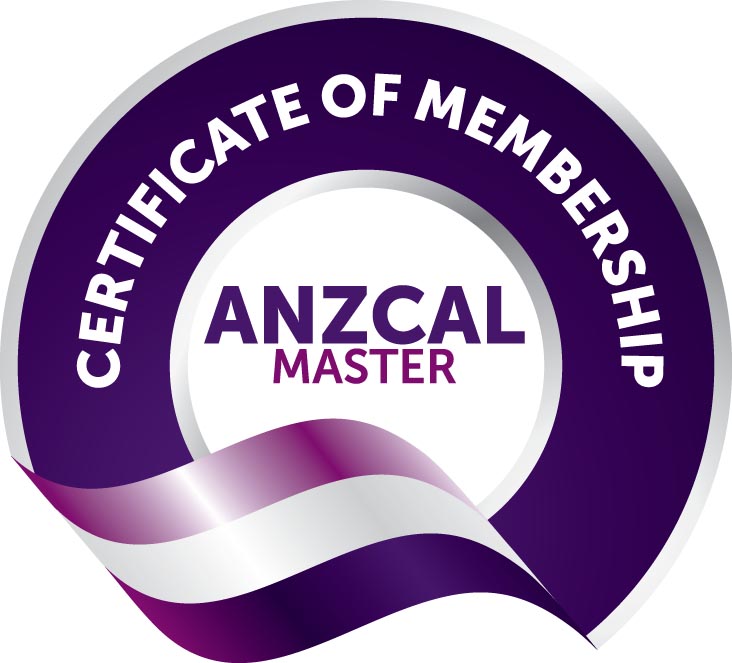
In my early teens, I started writing out other people’s poems in longhand in a scrapbook. I would select images from old magazines, cut them out and paste them alongside the poems. After filling up a few scrapbooks, it wasn’t long before I was writing my own poetry. To be honest, my skill as a poet is never going to earn me New Zealand Poet Laureate status, despite my teenage delusions of grandeur. In retrospect, I realise my poetry writing was (and still is) a form of art therapy, mindfulness and meaning making.
Essentially, the tactile process of writing poetry facilitated a connection between my external and internal worlds, and helped me to make sense of my own inner emotions through those turbulent teenage years. One of the first poems I wrote, I aptly entitled ‘Hope’. On reflection, I think I must have intrinsically understood that it is a sense of hope that moves us forward in life. At some deep level, I think we all understand this.
Viktor Frankl, who survived a Nazi concentration camp and went on to write Man’s Search for Meaning, was of the view that man should never lose hope, even in the face of hopelessness, and instead look for the meaning that lies therein. We know that the world is currently going through a societal shift of major proportions, and we hear about a new ‘normal’. Change is never easy and letting go of the familiar is hard, but a journey into the great unknown has been thrust upon us as a civilization and we must respond. Throughout history, humans have suffered through various trials and tribulations, and through this current global crisis, we are collectively being called upon again to keep hope alive in order to get through.
As humans, we are empathetic beings, and we feel the very real devastation and trauma that many people have experienced first-hand since this global pandemic hit. Even if we are watching from a distance, it is natural to get caught up in the doom and gloom scenarios of a global pandemic. It is natural to get wrapped up in conversations that focus on how many lives have been lost to the virus; how we can no longer travel to see loved ones, let alone travel at all; how young people’s lives are being interrupted; how so many people are losing their jobs and their livelihoods; how economies may never recover; how our freedom of choice is being stripped from us; how things are going to get worse before they get better. While all of this is true, there is always hope over the horizon, and we mustn’t lose sight of it.
So, how do we keep hope alive? How do we get through? How do we remain hopeful in the face of hopelessness, when things around us seem shaky and unfamiliar? For answers, we need to go back to the beginning, to our first year on this amazing Earth.
Erik Erikson was a human development theorist responsible for the 8-stage theory of psychosocial development across the lifespan. Throughout the stages of our lives, from cradle to grave, we face conflicts that impact our psycho-social-emotional wellbeing. Through our experiences, we work through these conflicts and they are resolved in ways that either help or hinder our healthy developmental outcomes. For example, in the first year of our lives, we face the conflict of ‘trust versus mistrust’. Depending on the love and care we receive from the people around us, we either learn to mistrust our environment or we learn to trust our environment. The way we resolve this conflict, is through hope.
A simplified explanation of this theory is that even though I might be all alone in my cot – hungry, thirsty, hot, cold, soiled, scared, in pain or discomfort – I learn that if I communicate my distress by crying loudly, the significant adults around me are going to quickly respond to my needs. This pattern of crying causing a desired effect (i.e. someone responds to my distress and I realise I am going to be okay), develops ‘hope’ in my own ability to ensure that my needs will be taken care of. This first cause-and-effect pattern teaches me that life is interconnected, interdependent and cyclical in nature.
Another human development theorist, Lev Vygotsky, taught us a great deal about language acquisition. We are predisposed to absorb language. When we are babies, we are automatically responsive to the soothing sounds of voices around us, particularly to the familiarity of our mother’s voice. The rhythm of language is soothing and calming, which is why we see young babies and young children respond to songs, music, lullabies and comforting, repetitive rhythmic voice tones. It is also why, as adults, we still respond to the rhythm of music and songs and repetitive words and beats.
As we learn words, we use language externally in social contexts to convey things we want or need. As our vocabulary increases and becomes internalized as thoughts, we use language to guide our thinking, actions and behaviours, and to acquire new skills.
Language acquisition is also important for emotional self-regulation. The more vocabulary we acquire, the better we become at thinking about our emotions, expressing our feelings, and regulating our behaviours. By the age of six, a child has about 2600 words in their active vocabulary, but they are able to understand 20,000 to 40,000 words – which is the average vocabulary of adults.
This is an interesting statistic, because we have about 172,000 words in the English language and yet, we only use a small fraction of the words available to us. The more words we can accumulate in our vocabulary, the better we become at articulation and self-expression. Which brings us to the connection between emotions, language and hope.
Research with cancer patients found that art therapy treatments, like music and poetry, provides improvements in 3 distinct areas: pain intensity, depression and hope. MRI scanning demonstrated that listening to music and hearing poetry being recited, engages the reward circuitry in the brain, called the mesolimbic pathway. While the exact mechanism is unclear, they found that only poetry increased the levels of ‘hope’ in patients.
The thinking is that, vocabulary alone is not enough to describe our emotions, however, poetry is uniquely capable of capturing what we often are not able to say in conversation, and in ways that we are not able to use in conversation. Poetry has the ability to tap into deep levels of emotion, to move us into a mindful state of emotional awareness, to engage our left and right brains in a beautiful symbiotic dance that allows our thoughts and emotions to become more fluid.
In other words, poetry has the unique ability to take us on an ‘ultimate journey’ where we are moved from a ‘stuck’ place, and into a space where hope springs eternal.
Find a comfortable place to sit. Read and reflect on this poem, Ultimate Journey, by Robert A Monroe, that I have selected for you. Notice how it makes you feel.
There is no beginning, there is no end.
There is only change.
There is no teacher, there is no student.
There is only remembering.
There is no good, there is no evil.
There is only expression.
There is no union, there is no sharing.
There is only one.
There is no joy, there is no sadness.
There is only love.
There is no greater, there is no lesser.
There is only balance.
There is no stasis, there is no entropy.
There is only motion.
There is no wakefulness, there is no sleep.
There is only being.
There is no limit, there is no chance.
There is only a plan.
Did you notice your feelings of hope increase as you read through the poem? What else did you feel? How can you bring more poetry into your life? The Poetry Foundation is a good place to start.
© Gaynor Clarke, September 2021
Gaynor is a teacher educator and mentor facilitating personal & professional leadership wellbeing outcomes for teachers.
If you are an early childhood teacher or leader looking to enhance your leadership skills, I would love to work with you. As a leadership mentor and coach, I specialize in helping early childhood educators develop their leadership potential and make a positive impact for the ākonga they serve. If you are interested in learning more about my leadership mentoring services, please visit my website or contact me directly to schedule a consultation. I would love to work with you!
Reach. Teach. Lead.
Reach Education Ltd
Teacher Leadership Mentoring and Life Coaching. Personal and Professional Development.








Leave a Comment
You must be logged in to post a comment.